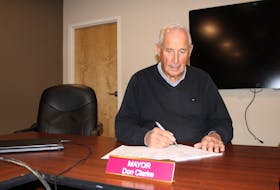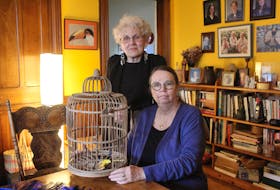Directors have been named for the public inquiry into last April’s mass murder that rocked Nova Scotia.
“We are pleased to have secured a group of experienced and dedicated individuals who are among the most highly regarded in the country in their respective fields. Many have direct ties to Nova Scotia. Essential to our success, each leader has been selected for their wisdom, expertise and commitment to public service,” says a news release from the Mass Casualty Commission.
“They include a former justice of the Supreme Court of Canada from Nova Scotia, a deputy chief of police of Canada’s largest city, originally from Nova Scotia, the country’s preeminent scholar in complex criminal matters related to violence against women, and leaders in human rights and mental health and wellness.”
The killer — whom SaltWire is not naming — started his murder spree in Portapique, where he had a cottage, on April 18 after, according to his partner, he snapped. The murderer shot multiple people and set homes on fire. Dressed in a police uniform and driving a fake police car, he evaded RCMP and killed four more people in Wentworth before heading toward Halifax, killing several more along the way. By the time Mounties shot him dead April 19 at the Enfield Big Stop, he had killed 22 people.
The governments of Canada and Nova Scotia acquiesced to public pressure last July and announced their intent to establish a public inquiry instead of the independent panel review that had been previously announced.
The directors just announced by the three-commissioner panel struck last year to probe the murders are: Thomas Cromwell, a judge on the Supreme Court of Canada until 2016, Emma Cunliffe, a professor at the Allard School of Law at the University of British Columbia and a visiting professor at the Schulich School of Law at Dalhousie University, Christine Hanson, Director and CEO of the Nova Scotia Human Rights Commission, Deputy Chief Barbara McLean of the Toronto Police Service, who is originally from Antigonish, Mary Pyche, a mental health expert, and Maureen Wheller, who specializes in public engagement.
The commissioners are Kim Stanton, an Aboriginal and constitutional law expert, J. Michael MacDonald, former chief justice of Nova Scotia, and Leanne Fitch, Fredericton's former police chief.
“The directors are working closely with the commissioners to design an inclusive process that will engage and hear from people and organizations who want to participate in the commission, while observing COVID-19 protocols. To this end, the commission is preparing a Notice for Potential Participants to gather information from those who want to be connected to the commission’s work,” says the news release from the commissioners.
"Planning for community meetings is also underway. There will be in-person and virtual options available.”

'One of the most important undertakings'
In the release, Cromwell called the commission’s work “one of the most important undertakings in recent Nova Scotia history. This province is where I spent most of my legal career and where I learned most of what I know about the law and doing justice. I want to do anything I can to put what I’ve learned in the service of the Commission and the people it serves.”
Cromwell has been named counsel director for the Mass Casualty Commission.
“My team is responsible for presenting evidence to the commission that will permit the commissioners to fulfil their mandate and the many people who have been affected by this mass casualty to get the most complete and accurate answers to their questions,” he says in the release.
“The most important thing for me is that we do that to the very best of our ability and with the highest standards of fairness and thoroughness.”
MacLean will bring more than three decades of policing to the role of directing investigations for the commission.
"As a proud Nova Scotian, the events of April 2020 have had a great impact on me,” MacLean says in the news release. “So, when I was asked, I did not hesitate to say yes. In a way, I feel like I am being called home to help the commission help the people of Nova Scotia.”
Cunliffe will be the commission’s research and policy director.
“Our research and policy work will help the commissioners to formulate recommendations that could help to prevent future events of this kind,” Cunliffe says in the release. “This work will help us to understand the causes and context of the events of 18 and 19 April 2020 and point towards how we might foster safe and resilient communities. It will also inform overall policy development and how to better support victims and communities.”
Hanson will be the commission’s executive director and chief administrative officer.
“Our goal is for the commission to be able to provide meaningful recommendations that are fully implemented so that something like this never happens again and throughout the process, provide the best support possible to survivors and victims of these traumatic events,” Hanson says in the release.
Pyche will be the commission’s mental health director.
“My focus will be collaborating with all areas of the inquiry team to ensure we are intentional in our efforts to minimize and mitigate any additional harms and to apply an understanding of and responsiveness to the potential impacts of trauma,” Pyche says in the news release.
Wheller will be the commission’s community liaison director.
“My role is to build consistent, respectful, easily accessible methods to communicate between the commissioners and the victims, families of the victims, their supports, and communities,” Wheller says in the release.
“Access to information will be fair and equitable and will respond to what is needed. My work will include close collaboration with other commission directors to ensure information and understanding flow to and from those most affected.”









